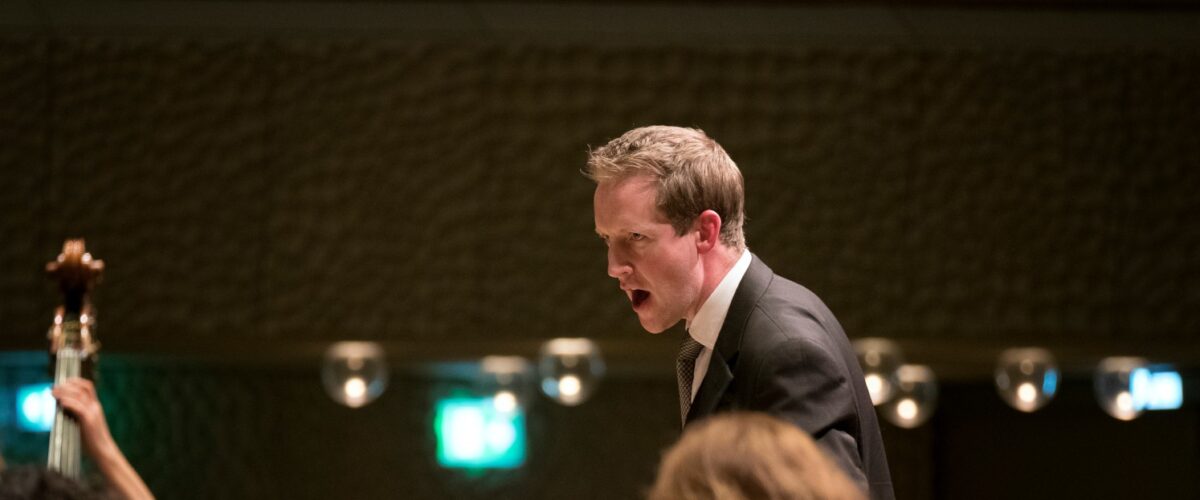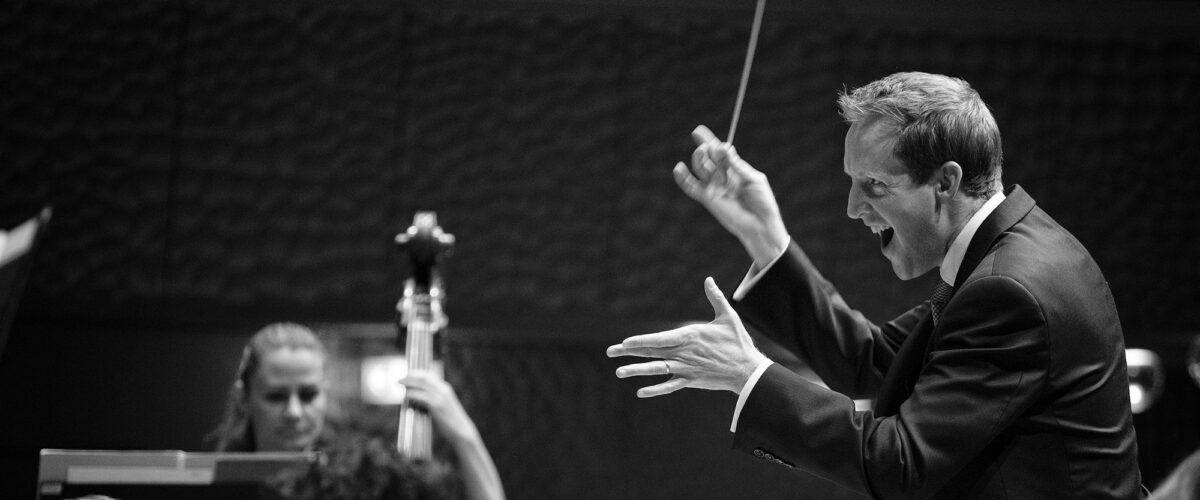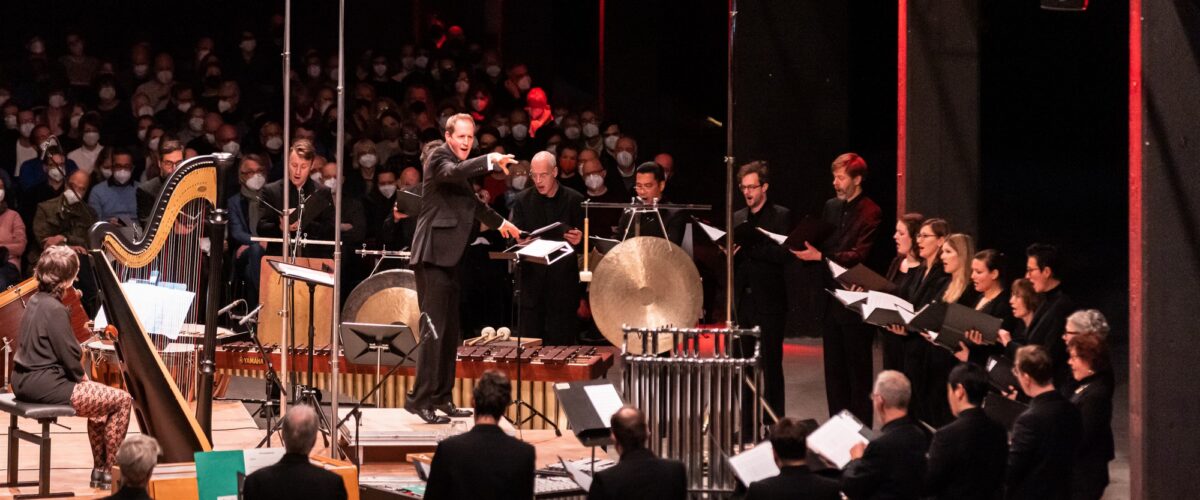TRANSCRIPT
Scofield: You have been making the performance of choral music, the love of your life, since a little boy. You were born in Lancaster, but you were a boy chorister at Westminster Cathedral, and then a choral scholar at King’s College at Cambridge. So choral music is your life.
Doyle: I was being very lucky, I have to say that. I never intended to be a musician honestly. I always loved music, but I never wanted to do it as a job, because I’d seen enough colleagues of my parents, for example, find that the transition from hobby to job, unlike any other job, it becomes a chore in some people’s cases. That’s a real shame, and I never wanted that to happen myself.
I came into conducting not quite by accident, but it evolved. I was playing the cello a lot at university and singing at Kings, and was hoping to go into radio production or something like that where my musical interest was useful, but not actually performing. Actually weirdly in this corona time, I find it very sad not to be making a sound. So I took my cello out of its box for pretty much the first time in 25 years, and I’ve started to try and practice the cello again, which is pretty soul destroying actually, because it’s terrible, my intonation is just horrific. But at least I’m able to make a sound, and my wife’s a singer, so we’ve done a little bit of music making together.
Scofield: Another thing I’m interested in your background, Justin, you seem to have done quite a bit of work with period instrument ensembles. What is your interest in those types of music makers?
Doyle: Akademie für Alte Musik Berlin is a period instrument ensemble, and the idea is that we play Haydn or Monteverdi, to go back a couple of generations before, on the instruments that those composers might have expected to hear. It makes a lot of sense particularly now we have this recording world that only a hundred years ago was not known, and in a sense that polish and perfection sometimes lose some of the raw natural energy that comes from a vibrant performance on instruments that may be harder to play. I think what we’re able to do is play Haydn’s music with 200 extra years of technical development behind us in our playing experience, but with the instruments that he would have heard. So very few people know Heinrich Biber’s Rosary Sonatas unless they have an interest in early music. And yet, Biber was composing for these incredible violins and others in Salzburg one generation before Leopold Mozart, who was one generation before Wolfgang and the Haydns. Unless you know the Biber, you shouldn’t be doing Haydn. Unless you know Haydn, you shouldn’t be playing Mahler. Unless you know Mahler, you shouldn’t be playing Schoenberg. Music is a continuum, and I think what’s important is that we take the lessons we learn from period instruments, and also apply them to the way you work with modern instruments. I think there’s a lot to be learned from that.
Read more about Justin Doyle on their OFFICIAL WEBSITE.




